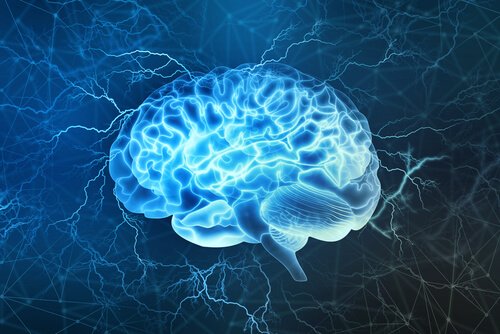Mental Exhaustion: Another Effect of Social Isolation


Written and verified by the psychologist Valeria Sabater
Although many of us are spending a lot of time locked away in our houses these days, we still feel both physically and psychologically tired. This is perfectly normal. It’s important to realize that another effect of the current social distancing and home confinement is mental exhaustion.
“Is it safe to go out on the streets?” “What’s going to happen with the lockdown?” “What can and can’t I do in the next stage of the exit strategy?” “Will the protective measures in place be enough?” “What will happen to my job?” “Will I be able to see my family?”
These are the questions many people are asking themselves lately, as all the distress and constant uncertainty cause a lot of anxiety.
When our minds are exposed to all of this, any kind of decision, no matter how insignificant, becomes exhausting. Sometimes, even just deciding what to make for dinner, how to get our children to go to bed on time, or how to make them do their homework is a real challenge. Everything starts to feel really hard.
It’s important to keep in mind that all these experiences and feelings are normal. We’re not falling apart nor suffering from any mental health problems. It’s a normal and expected response to the current isolation.

Mental exhaustion and social isolation
Experts tell us that social isolation isn’t the correct term for what we’re experiencing. Humans are social beings. We become part of society as soon as we’re born and, for that reason, it’s impossible to take ourselves out of that scenario. Thus, even though we’re inside our homes, we’re still a part of society.
Rather than social isolation, we should talk about physical isolation because that’s what the current coronavirus health crisis is imposing on us. However, regardless of the exact definition of this type of isolation, there’s an undeniable fact. Confinement isn’t good for us and our brains react to this unexpected situation in very different ways.
Increasing the cognitive load
When we talk about cognitive processes, we’re referring to the activity that your brain generates. Examples of this include focusing your attention, making sense of everything you hear, read, or see, making decisions, processing the sensations your body feels, and learning and creating new things, among others.
This extraordinary flow of brain activity is affected by the environment that surrounds you and, above all, by the way you interpret the things that happen around you.
The simple fact of being in the same physical space for hours on end increases the stress on your brain. This is because your mind needs changes, light, sounds, interactions, and new stimuli to feel active and awake.
If your surroundings don’t change and you feel a bit down or anxious, this can exhaust or saturate your mind.
In this confined state, any cognitive process will be more difficult for you. Even remembering something like a new phone number can be challenging.
The current circumstances aren’t helping us make good decisions
When you suffer from mental exhaustion, you aren’t in a fit state to think long-term. This is particularly important regarding your decision-making, a factor that’s very important right now. You need to clarify what kinds of changes you need to make or strategies you need to apply.
The pandemic has altered millions of people’s lives. Under these difficult conditions, your mind will probably find it difficult to decide, plan, and analyze, among many other things.
Moreover, some people are finding it very difficult to understand different official documents at the moment. An exhausted mind can probably just decide that it needs a nap or a cup of coffee right now but can’t do much beyond that.

How to handle mental exhaustion
The current situation has placed us in uncharted territory. However, there are some simple strategies that you can try in order to discover if they work for you.
Each person faces, interprets, and lives out the current pandemic differently. But, beyond the way everyone deals with this adversity, we can’t deny that they’re difficult circumstances for everyone.
Thus, when you’re dealing with mental exhaustion, we recommend that you reflect on the following factors:
- Mental exhaustion is common when faced with stressful circumstances. Thus, you shouldn’t think that something’s wrong with you.
- Perhaps it’s not a good time to make long-term decisions. It’s time to focus only on the here and now, and, above all, on your well-being. You need to give yourself what you need, when you need it. Focusing on the here and now reduces your mental burden and anxiety levels.
- You must get used to doing and thinking one thing at a time. An exhausted mind becomes saturated when it’s trying to cope with several things at the same time. For example, what you have to do, things that are worrying you, things you’re scared of, what you did yesterday, and what you’re planning to do today.
One step at a time
Therefore, the important thing is to take things one step at a time. If you’re having breakfast, then focus on eating it in a relaxed way. If you’re teleworking, then focus on that. And, if you decide to do something, then do it at a time when you can devote yourself exclusively to it.
Last but not least, accepting all your feelings and emotions without judgment is key for your health. Some days, you’ll feel okay. But on other days, you may feel downright awful. Thus, it’s important to make a conscious effort to be calm to relieve your troubled mind.
This text is provided for informational purposes only and does not replace consultation with a professional. If in doubt, consult your specialist.








